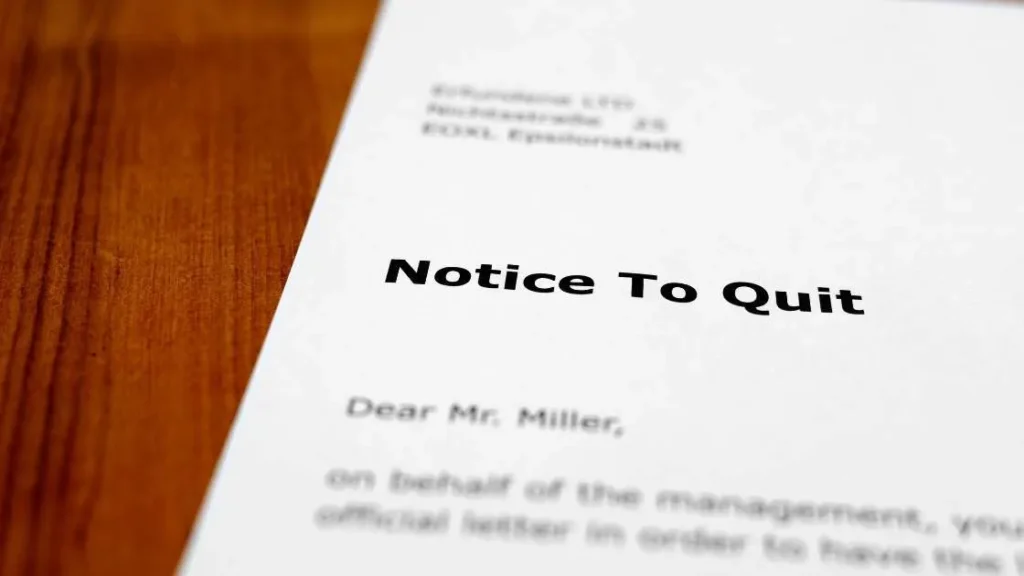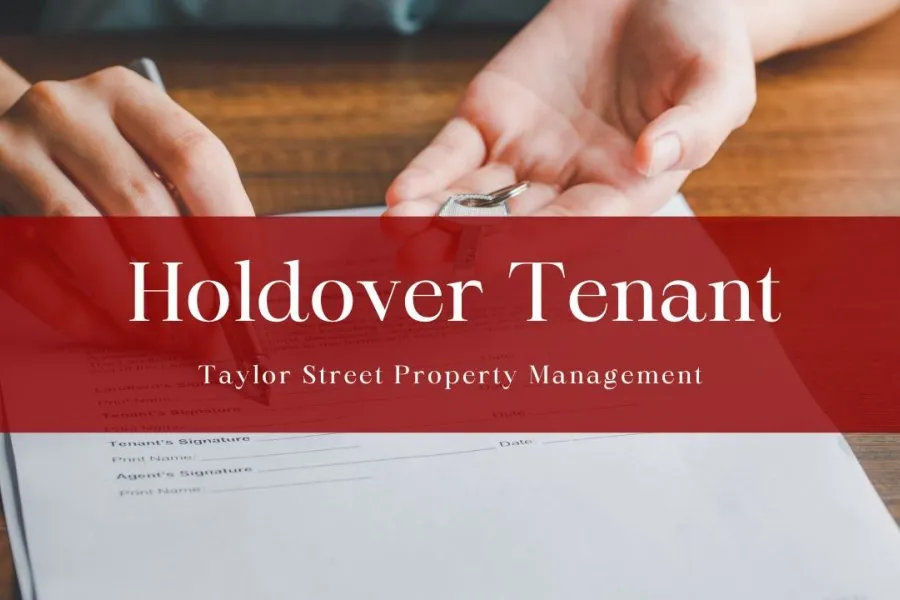As a landlord, you may have come across the term “holdover tenant” at some point. But do you know what it actually entails and how it can affect your property? In short, a holdover tenant is a tenant who remains in a rental property after their lease has expired, without the landlord’s consent.
This can be a tricky situation for landlords to navigate, as it presents legal and financial questions. In this article, we at Taylor Street Property Management will take a closer look at what a holdover tenant is and provide you with everything you need to know as a landlord. From understanding the legal implications to handling the situation as a whole, we’ll cover it all so you can be prepared if this problem arises.
Defining Holdover Tenant?
As mentioned above, a holdover tenant is a tenant who remains in a rental property after their lease expires, without the landlord’s okay. This means they’re living in the property without a valid lease agreement.
Issues of holdover tenants can occur for a variety of reasons, such as a tenant forgetting to renew their lease or a landlord failing to give proper notice to vacate.
It’s also important to note that a holdover tenant is different from a tenant who stays in a property with a lease on a week-to-week or month-to-month tenancy, in which case the tenant is considered to be on a holdover tenancy.

Risks of Having a Holdover Tenant
A tenant remaining in a rented property after their lease has expired can cause several issues for landlords, including:
- Legal Issues – A holdover tenant is occupying the property without a legal lease agreement, which can lead to legal disputes. Landlords may have to go through the eviction process to remove a holdover tenant, which can be time-consuming and costly.
- Financial Issues – A holdover tenant might not be paying rent once the lease period ends, which can lead to a loss of income for the landlord. What’s more, landlords may be responsible for paying addition fees associated with the eviction process.
- Maintenance Issues – A holdover tenant may neglect to take care of the property, which can lead to damage and require costly repairs.
- Difficulty Renting to New Tenants – A holdover tenant is occupying the property without a valid lease agreement, making it difficult for landlords to rent the unit to a new, paying tenant.
- Confusion – Holdover tenants can be confusing for landlords as they are not sure if they are allowed to enter the property and make repairs or not, or what their rights are regarding the eviction process.
It’s essential for a landlord to have a clear understanding of the legal implications and rights related to holdover tenants so they can handle the situation in a timely, legal, and efficient manner.

Ways To Handle a Holdover Tenant Situation
There are several ways a landlord can handle a holdover tenant situation. The following are some options available to you:
- Negotiate a New Lease – Try to negotiate a new lease with the tenant, outlining the new terms and conditions.
- Give the Notice to Vacate – Give the tenant a notice to vacate. Follow state and local guidelines for the timeframe of the notice.
- File for Eviction – If the tenant does not vacate the property after receiving a notice, file for eviction in court.
- Hire a Lawyer – If the tenant refuses to vacate the property and the landlord is unable to resolve the situation, they may need to hire a lawyer.
How to Avoid Holdover Tenants
To prevent a holdover tenant situation, landlords should remind their tenants of the end of their lease at least 60 days in advance. Additionally, sending another reminder closer to the date can help ensure that the tenant is aware of their move-out requirements.
If a tenant stays past the lease term, landlords should not take any rent payments from the renter, as this will convert the tenancy into a month-to-month one and make it difficult to treat the tenant as a trespasser. Furthermore, unless the new lease is signed, landlords shouldn’t accept rent from the current tenant, as this could impose various eviction limitations.

Periodic Tenancy
A periodic tenancy is a type of tenancy in which the tenant pays rent on a regular basis, such as weekly or monthly, but the tenancy continues indefinitely until either the landlord or the tenant gives the notice to end it.
The period of the tenancy is determined by the frequency of rent payments, and either party can terminate the tenancy by giving notice in accordance with the terms of the tenancy agreement or state laws.
This type of tenancy is also known as a “holdover tenancy” or “tenancy at sufferance” when the tenant remains in possession of the property after the end of the lease and the landlord accepts rent.
It’s important for Arizona landlords to be aware of the laws and regulations regarding periodic tenancy in their area, and to consult with an attorney if they have any questions or concerns.
Bottom Line
A holdover tenant is a situation landlords want to avoid as much as possible. It’s important for landlords to be aware of the laws and regulations regarding holdover tenancy in their area, and to take the appropriate steps to address the situation should it arise.
Avoiding holdover tenants altogether by reminding renters of the end of their lease and not accepting any rent from them. Overall, it’s important for landlords to understand their rights and responsibilities when dealing with holdover tenants, and to act in a timely and legal manner.
At Taylor Street Property Management, we handle all aspects associated with property management. Contact us for more information about our professional property management services!


